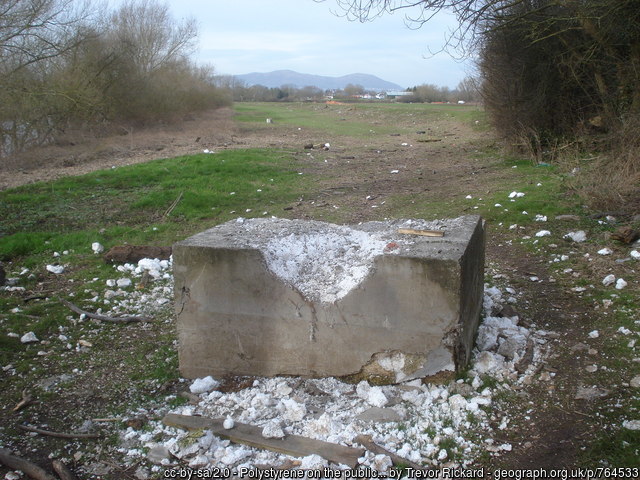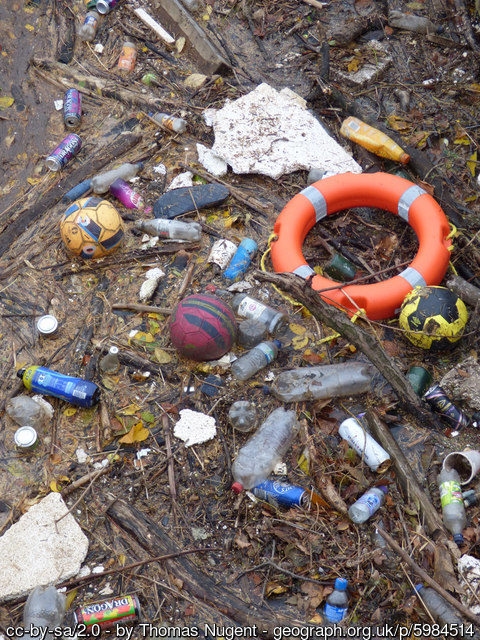
What is Polystyrene?
Polystyrene (PS) is a petroleum-derived material that is labeled #6 for it's recycling code (located on the bottom of most plastics). PS comes in the form of flexible plastic (cups, wares), and hard, brittle foam (packaging, and loose-fill packing peanuts). The latter is Expanded Polystyrene (EPS); StyrofoamTM is the brand name of many foam materials. A more detailed account of what Polystyrene is can be found at this website.
What do I do with it?
Polystyrene is NOT recyclable at any location within our district. Some places in VT or Massachusetts will accept it by mail to be recycled, and you must pay the shipping costs. Due to the low density (high volume), it can cost a lot to ship.
There are a few ways to attempt to reuse EPS. Check out the Trash Backwards blog for that and other material repurposing ideas!
Reasons to avoid Polystyrene:
-YOUR HEALTH: and your children's...
Along with the many other plastics that have negative effects on our bodies, especially avoid polystyrene packaging and cups to consume food/drink from. Polystyrene is a known endocrine disruptor, and has high-likelihood of contributing to cancer. Putting hot food/drink in the containers will cause even more migration from foam to your body.


electronica02 [CC BY-SA 2.0], via Wikimedia Commons
-ENVIRONMENTAL HEALTH:
As seen in the photograph at the top of the page, foamed polystyrene tends to break down easier than any other plastic. These small particles get into bodies of water, bodies of animals, and then again- our bodies... This is visibly obvious to most people, but here's an interesting article on its effects on our environment.
There are few reasons TO use polystyrene. Cheap costs to the individual or business require large subsidies from governments to provide treatment care for the litter and health problems that occur as a result. Check out the alternatives to polystyrene below that are just as effective (and can even cost less).
Alternatives to Polystyrene:
Bring Your Own Container
Or better yet, pack your lunch or meal when you go out of the house. That way you can avoid all the disposal of materials that come with restaurants and to-go food (and you know what's in the food). Glass jars/tupperware are reusable as long as they last, and don't leach chemicals into the contents. Even though you pay more initially, they save you money over time!
Eco-Friendly options
If it is necessary for your business to use to-go materials, then at least go for items that have a better impact. To-go containers aren't usually recyclable, but they could have lower embodied energy, health, and litter impacts. Only certain types of containers are compostable, but they usually end up in the car or at home anyways. It's hard to say which types of products have lower environmental impacts, but regarding the customer's health, paper-based packaging is almost certainly better.
Enjoyed this article? Share it on Facebook! Sign up for our monthly e-newsletter for more information on materials like this. Email carld@rcswd.com with any ideas for spotlights on certain materials.
